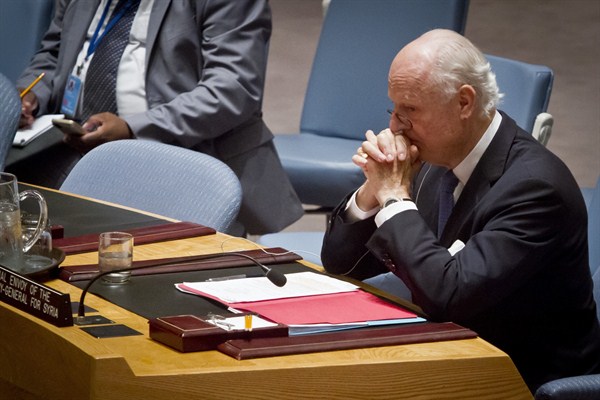Peacemaking is a repetitive business. Mediators and diplomats handling protracted conflicts rarely come up with entirely new ways to end them. They frequently revise and repackage previous peace plans, hoping that they will gain more traction than they have in the past. The U.N. Security Council did just that last week, recycling old proposals to end the Syrian war and selling the initiative as a minor breakthrough.
Last Monday, the Security Council’s members agreed on a statement calling for a “Syrian-led political process leading to a political transition,” potentially involving “the establishment of an inclusive transitional governing body with full executive powers” that would take over from the regime of President Bashar al-Assad. At first glance, this looked like a hefty concession by Assad’s allies in the Security Council, Russia and China. The French representative went so far as to call the agreement “historic.”
In reality, the statement did little more than reaffirm the principles of the Geneva communiqué, a document laying out the terms for a transition in Syria hashed out by the former United Nations special envoy for Syria, Kofi Annan, and the foreign ministers of the Security Council’s permanent members in June 2012. This included details on “clear steps in the transition,” including a temporary authority with executive powers to ensure a “neutral environment” for political change. The communiqué, however, was a diplomatic flop that had no serious impact, precipitating Annan’s resignation.

